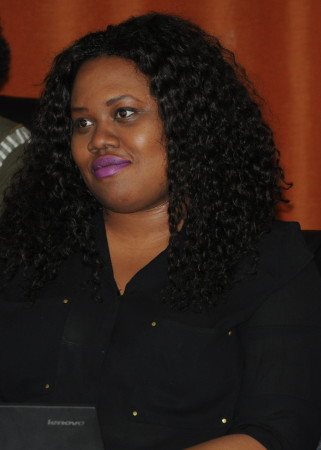The United Nations defines violence against women as “Any act of gender-based violence that results in, or is likely to result in, physical, sexual or mental harm or suffering to women, including threats of such acts, coercion or arbitrary deprivation of liberty, whether occurring in public or in private life.”
“Hannah was raped. It does not end there. Hannah was disembodied; skull fractured, glue found in her eyes, broken bones in multiple areas of her body, her spinal cord – shattered. When Hannah was found, only a pink brassiere covered the top part of her body. Her legs were sprawled apart, the only cover came from the beach’s sand and seaweed. Hanna was raped and her murder, an inhumane act of violence.” – Fatou Wurie – CEO Conceptor, Innovator of The Survivor Dream Project, Sierra Leone

Fatou’s chilling account of a brutally murdered teenager found on a beach in the Sierra Leone capital this August was particularly disturbing because it appeared to highlight an alarming rise in the number of unsolved assaults on women and young girls in the west African nation. The incident led to a massive street protest by activists and civil society groups calling on the government to take a stand and to halt the violence.
“Hannah’s death reminds us all that women’s bodies in Sierra Leone are under heavy siege. That Sierra Leone’s highly patriarchal society still subjugates with structural discrimination in practice, custom, and law, with a plethora of women still facing suppression in education, employment and politics. Sexual violence has always been rampant in Sierra Leone – the rhetoric that Ebola has induced a spike in sexual violence undermines the reality that little has been done to improve social and economic options for women.” – Fatou Wurie
In Ghana, women make up just over half of the population, yet they still play a subservient role to men despite the constitution guaranteeing equal roles. According to the Gender Studies and Human Rights Documentation Centre, under our customary systems women are expected to give precedence to men in all things creating a position where Ghanaian women are equated to children…this has meant that many women have accepted the situation which allows men to “punish” them for their alleged disobedience.
Daily reports of murder, abduction and rape or defilement of women and minors, a member of Parliament’s remarks about punishing adulterous women and two high-profile alleged rape cases involving media celebrities, are a painful reminder of the distance we still have to cover in order to push against the denigration of women, persistent disregard for women’s sexual and personal rights and the prejudices and injustices suffered by women corageous enough to charge men with rape.
Last December Daboya Mankarigu Nelson Abudu Baani, a member of parliament in northern Ghana spoke against a new intestate succession bill saying that it could cause “customary anarchy” and recommended that women who cheat on their spouses be stoned or hanged. The bill was aimed at giving more rights to women with regards to the property of their deceased husbands.
His remarks were condemned by women’s rights activists and members of the public who called for his resignation but he refused to do so, clinging to his seat until he lost a re-election bid this past weekend.
Nineteen year old Ewuraffe Orleans Thompson accused Ghanaian television celebrity Kwesi Kyei Darkwa of raping her in a hotel bathroom in March, but withdrew her case against him a few weeks later, citing pressure from the media frenzy the story generated.
A few weeks later, a radio presenter’s report of her abduction and gang rape, while pictures of her nude body allegedly taken during the rape were circulated widely on the internet, caused a similar furor. The abduction story was condemned by the government and caused public outcry, but a police investigation into the case of Miss Ada, a popular host of YFM radio station in the western, ran into problems when she was unable to provide evidence for her abduction.
What all three incidents had in common were the profusion of hateful, sexist and misogynistic reactions they generated among the Ghanaian public.
Elsewhere on the continent, comments by Grace Mugabe, wife of Zimbabwean leader Robert Mugabe last week, sparked off a twitter stream of protest.
“If you walk around wearing mini skirts displaying your thighs and inviting men to drool over you, then you want to complain when you have been raped? It’s unfortunate because it will be your fault,’ Grace Mugabe said during a political rally this month.
As we join in the UN’s 16 Days of Activism against Gender-Based Violence Campaign this year, we invite you to tell your stories, highlight atrocities in your countries and tweet your comments, opinions and thoughts to our website, facebook page or twitter feed @awdf01 using the hashtags: #orangetheworld #16days
Sincerely,
Amba Mpoke-Bigg AWDF, Communications and Fundraising Specialist
Key Dates during the 16 days campaign:
- November 25: The International Day For the Elimination of Violence Against Women
- December 1: World AIDS Day
- December 3: International Day for Persons with Disabilities
- December 10: International Human Rights Day
Every year AWDF supports women’s groups over the continent to highlight the 16 Days campaign with a small grant. This ensures that we are are constantly keeping the fire burning and fulfilling one of our main missions of advocacy and the promotion of women’s rights.
AWDF will also support initiatives by women’s groups to address the stigma and discrimination against women living with HIV-AIDS. This year we are proud to support 40 organizations in their campaigns to mark 16 Days and World AIDS Day
